Benefits of Bitter Melon or Bitter Gourd |
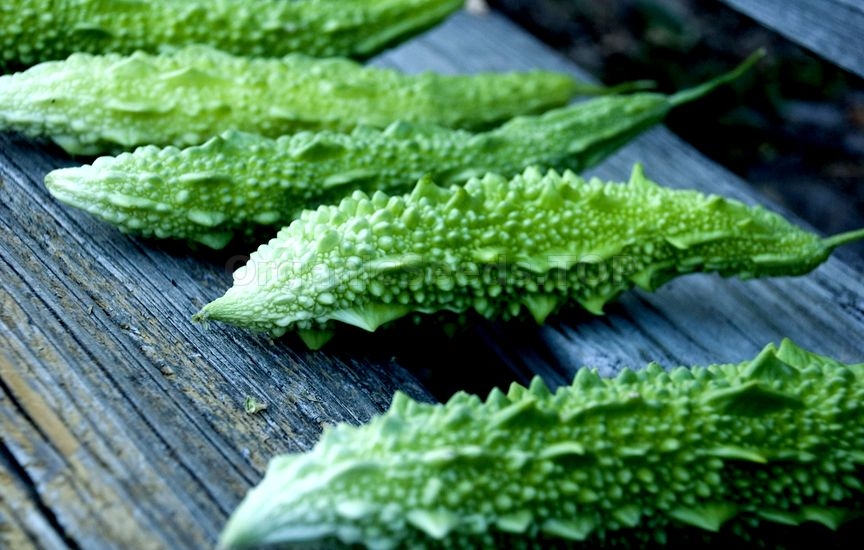 Bitter Melon or Bitter Gourd health benefits includes managing blood sugar and treating diabetes, enhancing body immunity, hemorrhoid relief, help sharpen vision, relieving asthma, enhance skin and treat skin conditions, plays role in cancer prevention and helps treat HIV and herpes. Other benefits includes reducing cholesterol levels, promoting bone health and promoting weight loss and good digestion. What is Bitter Melon or Bitter Gourd? Momordica charantia or Bitter Melon is the edible fruit-pod of a tendril-bearing vine native to India, and is now widely cultivated in Asia, Africa, and the Caribbean islands. It is harvested before it fully ripens otherwise it becomes increasingly bitter. The plant’s most prominent characteristics are its jagged warty texture and bitter taste.
Botanically, it belongs to the Cucurbitaceae family and is a close relative to the cantaloupes, cucumber, and squash. Apart from its scientific name, it also has many other names in different languages such as Ampalaya in Filipino, Cerasee in Jamaican, and Karila. 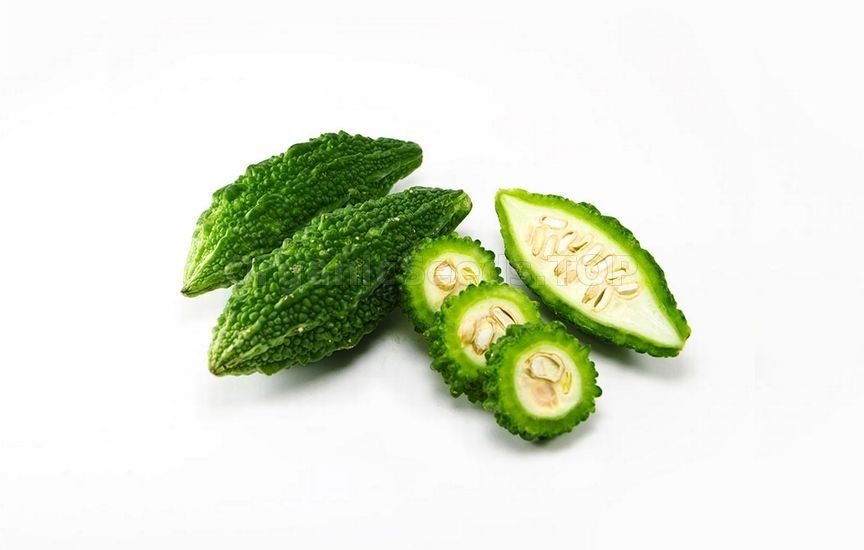 However, most people simply recognize it as bitter melon or bitter gourd due to its awful taste. Bitter melons or bitter gourds vary in shapes and sizes. Despite its sharp and acrid taste, bitter melon is present in many Asian dishes including Chinese, Japanese, and South Indian cuisines. Moreover, bitter melon is just as prevalent in herbal medicine as much as its use in Asian culinary applications. The use of bitter melon in traditional medicine dates back 600 years ago. At present, pharmacological research and clinical trials found that the fruit contain several health benefits, particularly hypoglycemic effects. Nutrition Info of Bitter Melon or Bitter Gourd (per 100g):
11 Impressive Benefits of Bitter Melon or Bitter Gourd1. Diabetes Treatment And Blood Sugar Management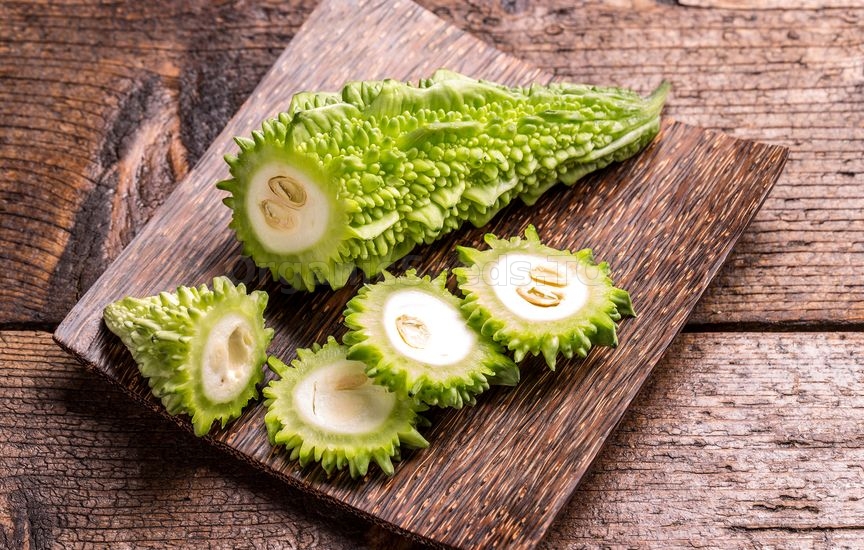 Momordica charantia is used primarily as an alternative therapy for lowering blood sugar levels in patients with type 2 diabetes mellitus. Considerably it is the most potent and popular fruit in terms of managing diabetes through alternative medicine. In fact, drinking bitter melon decoctions is a common practice of diabetes management in Asian countries.
Certain elements of the bitter melon, particularly polypeptide-P, have structural compositions akin to animal insulin. The overall phytochemical composition of the bitter melon consists of charantin, steroidal saponins, and alkaloids. Charantin specifically augments glycogen synthesis within liver and muscle cells. Together, these compounds greatly contribute to the fruit’s hypoglycemic effects. Regular consumption of bitter melon- be it fruit, juice, or dried powder can provide additive effects when taken with conventional hypoglycemic medication. 2. Immunity Enhancer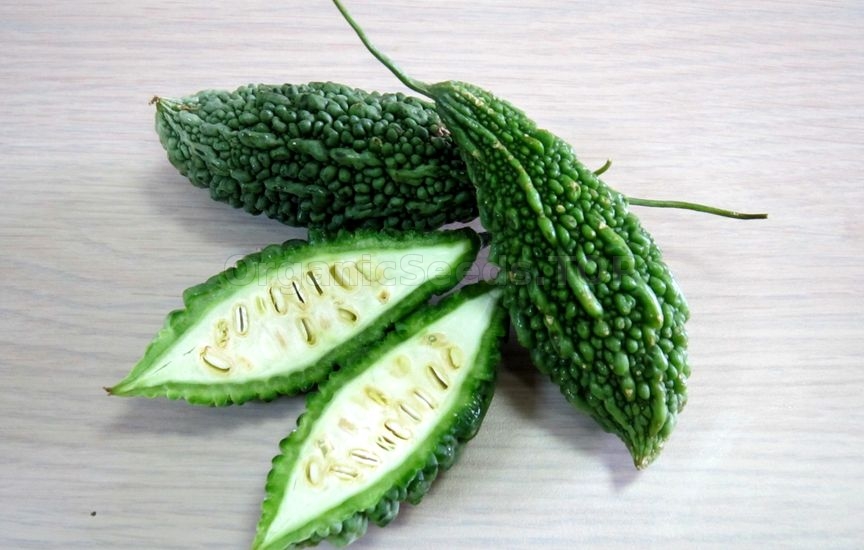 Adding bitter melon fruit or juice to your diet helps you recover from common illnesses much quicker and decreases your susceptibility to infections. Bitter melon is abundant in antioxidants that constitute an impregnable line of defense against viruses. The fruit is rich in Vitamin C, a powerful antioxidant. A hundred-gram serving of bitter melon provides over 80 mg of vitamin C.
Antioxidants attack free radicals within the body and eliminate other harmful compounds that may cause a number of ailments. 3. Hemorrhoid Relief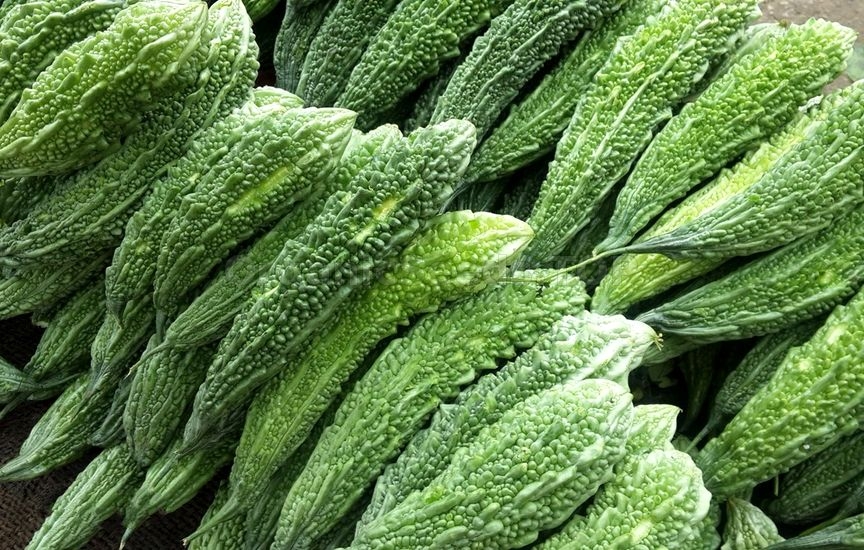 Bitter melon contains anti-inflammatory properties beneficial to individuals who have a condition called piles, or most commonly known as hemorrhoids. Simply make a salve using the plant’s roots and apply it topically to the venous swelling to alleviate pain and to stop bleeding. You can also treat sores and other skin conditions using this salve.
4. Sharper Vision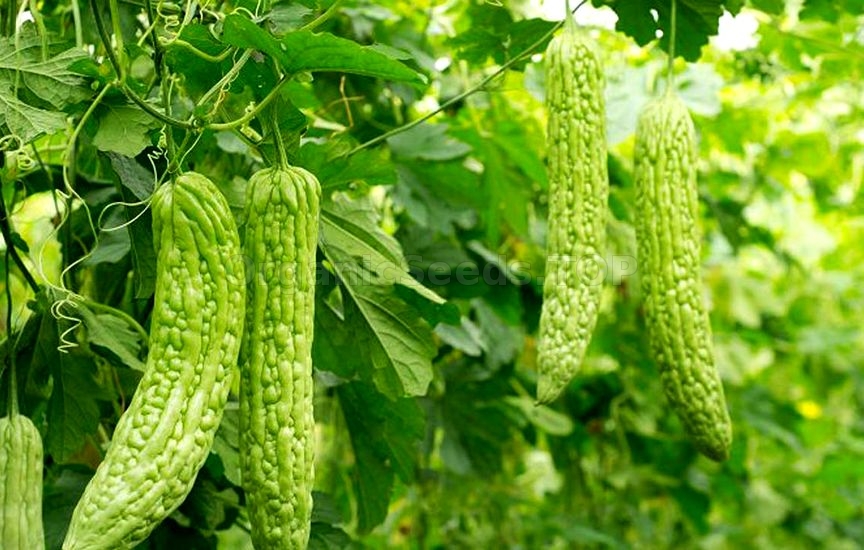 Bitter melon notably contains eye-health improving flavonoids such as α-carotene, β-carotene, lutein, and zeaxanthin. Together, these compounds enhance eyesight and night vision as well as decelerate macular degeneration. These compounds play a crucial role in fighting the effects of aging, eliminating oxygen-derived free radicals and reactive oxygen species that may lead to numerous complications.
5. Asthma Relief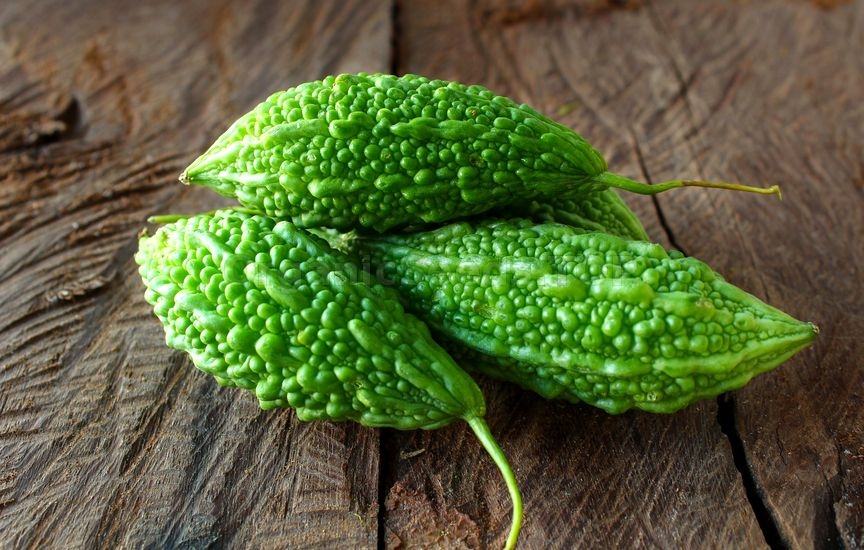 Bitter melon can help reduce symptoms brought on by certain respiratory conditions such as asthma, bronchitis, and hay fever. Bitter melon has anti-histaminic, anti-inflammatory, and anti-viral properties, which makes it an ideal supplementary food in maintaining good respiratory health. It also helps promote sound sleep.
6. Bitter Melon Consumption Can Help To Address Skin Conditions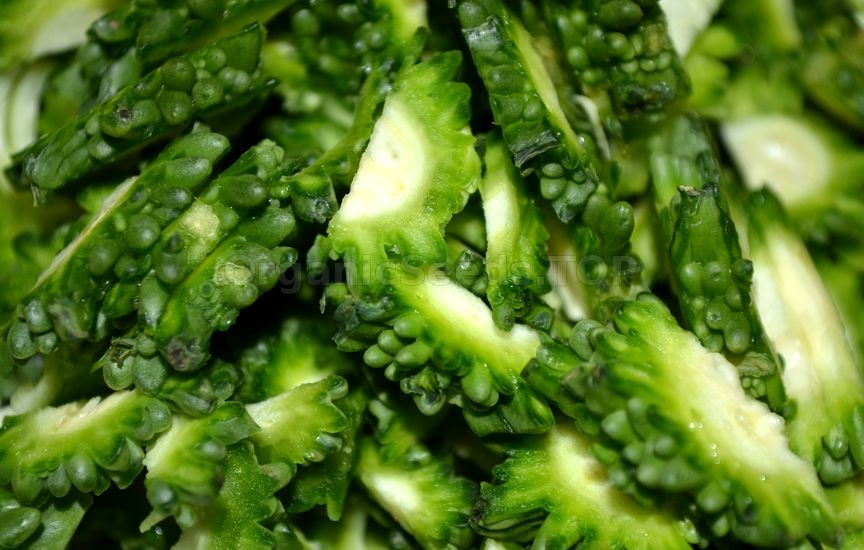 Ayurvedic and traditional Chinese medicine has been using bitter melon as treatment for skin conditions for centuries. The antifungal and antibacterial compounds present in the bitter melon fight off numerous skin infections including ringworm, scabies, and even the auto-immune condition psoriasis. Bitter melon stops guanylate cyclase activity that is responsible for worsening psoriasis.
Apply extracted juice or salve to the affected areas to reduce swelling and irritation. 7. Inhibits Cancer Cell Proliferation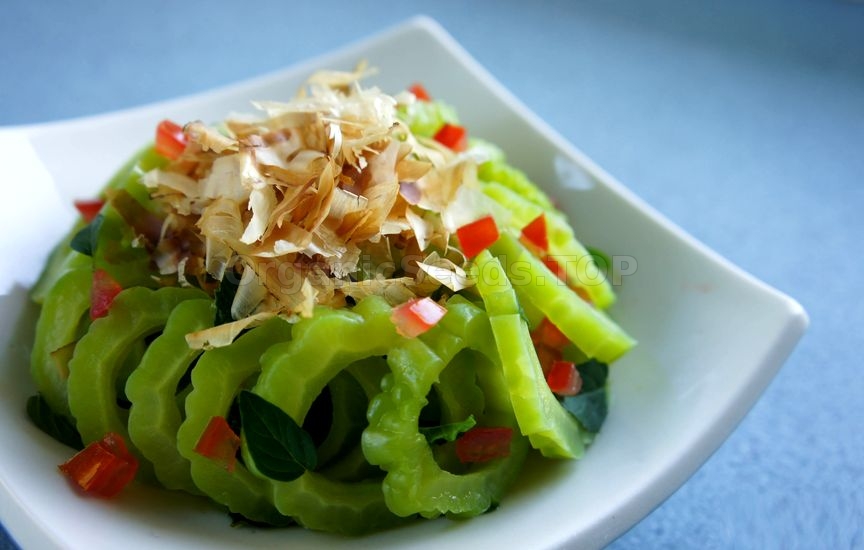 Free radicals seek out and destroy healthy cells, which accelerate aging and lead to numerous complications including cancer. Bitter melon is abundant in antioxidants that combat free radical effects as well as creating a strong defense against common diseases. Along with its abundance of antioxidant are its anti-tumor and anti-carcinogenic attributes.
Recent clinical trials and pharmacologic studies show a link between eating bitter melon and the reduction of tumors in individuals with breast, cervical, and prostate cancer. There has been a significant body of studies conducted for its role on cancer prevention, which is promising as an alternative to potent chemotherapy agents. 8. Help Treat HIV and Herpes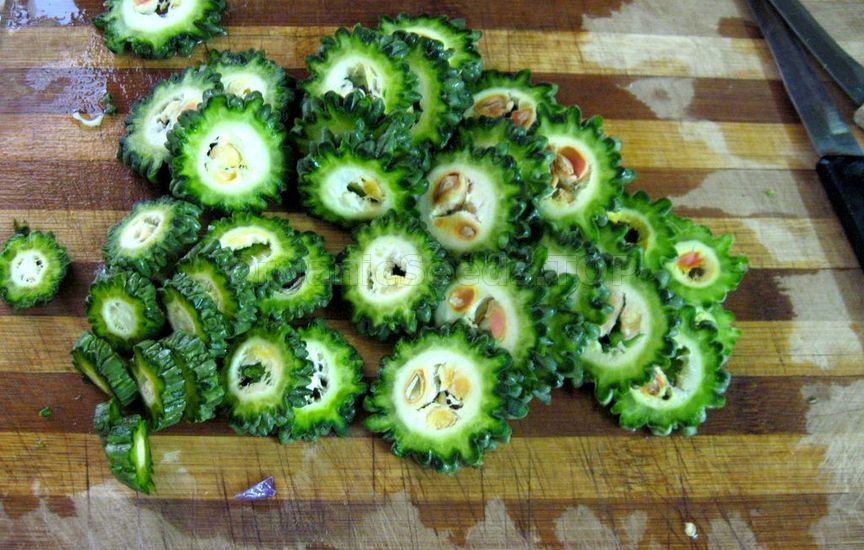 A laboratory test, published in the Journal of Naturopathic Medicine, suggests that the phytochemical composition of bitter melon inhibits the activity of the human immunodeficiency virus. Bitter melon provides additive effects in combination with AIDS treatment.
Likewise, early studies suggest that bitter melon, with its antiviral properties, treat patients with herpes simplex virus-1 (HSV-1), and prevent the spread of herpetic plaques to other persons. 9. Reduce Cholesterol Levels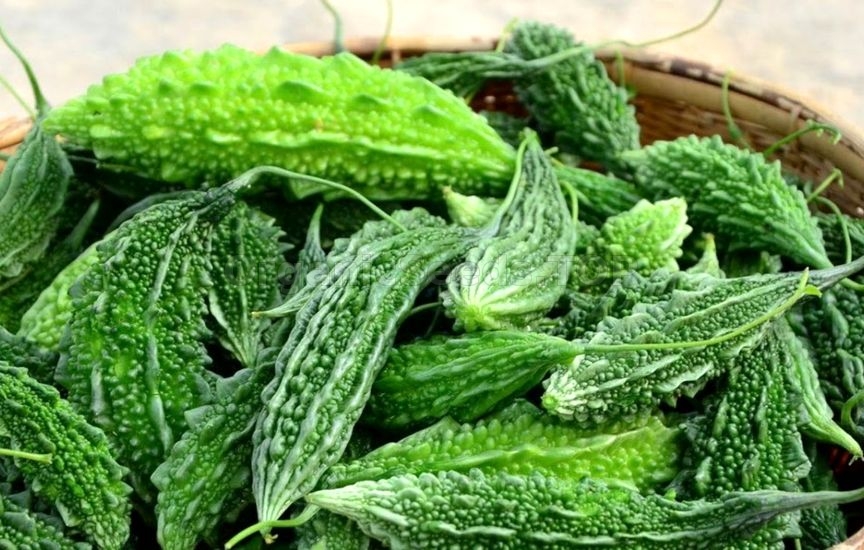 Bitter melon is also widely consumed to help lower bad cholesterol levels, which in turn prevents atherosclerotic plaque buildup in arterial walls. Decongested arteries reduce the risk of heart attack, heart disease, and stroke.
10. Promotes Bone Health and Fast Wound Healing It is also rich in Vitamin K, an essential nutrient that plays a key role in regulating normal blood clotting. Vitamin K also assists in calcium distribution throughout the body; thus, increasing bone density and reduces your risk of experiencing a bone fracture. Individuals with osteoporosis should consider eating foods rich in vitamin K such as the bitter melon.
Otherwise, the lack of this vitamin may cause bone fractures, easy bruising, defective blood clotting and excessive menstrual bleeding to name a few. 11. Promotes Good Digestion and Weight Loss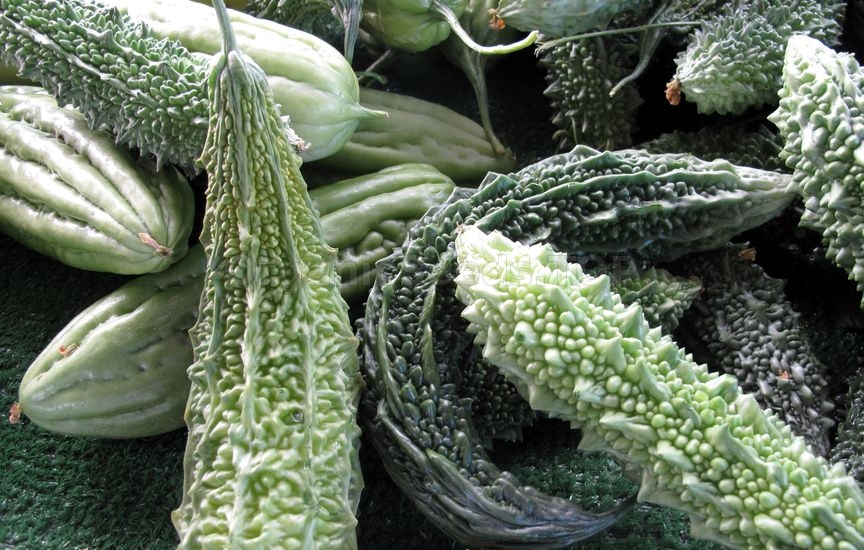 Bitter melon only carries 17 calories for every hundred-gram serving. Though it is low in calories, it is rich in dietary fiber, vitamins, and minerals. Dietary fiber aids in proper digestion and smooth peristaltic movement of food and waste through the digestive system. Hence, relieving indigestion and preventing constipation.
Likewise, its significant levels of charantin help increase your glucose uptake and glycogen synthesis, which in turn help you lose excess weight by decreasing storage in fat cells. Conclusion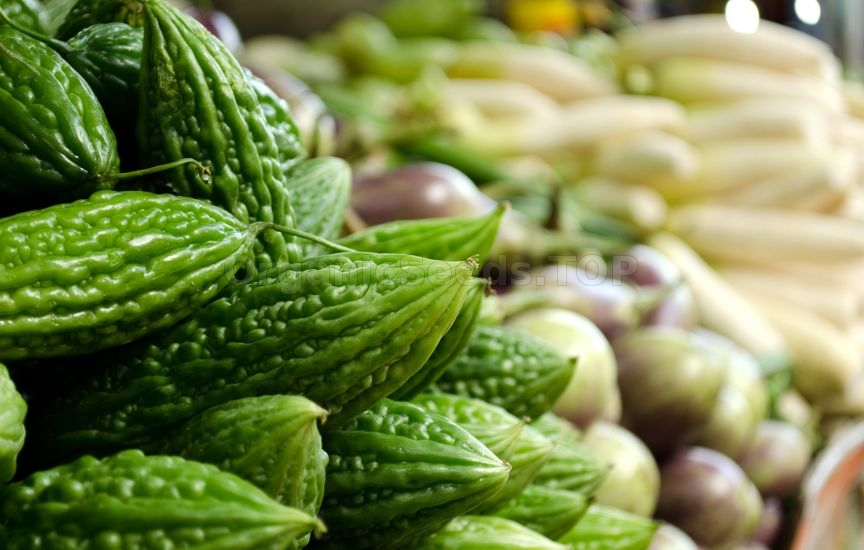 The bitter melon may have an unattractive appearance and a taste that most people would despise, but its bitterness also comes with a wealth of health benefits. It has antibiotic, anti-allergenic, anti-inflammatory, anti-fungal, anti-viral, and anti-parasitic properties. The bitter melon’s most notable health benefit is its ability in managing type 2 diabetes. Bitter melon is a staple among Asian cuisines and traditional medicine. You may need:«Armenian Cucumber» - Organic Melon Seeds |
|
|
